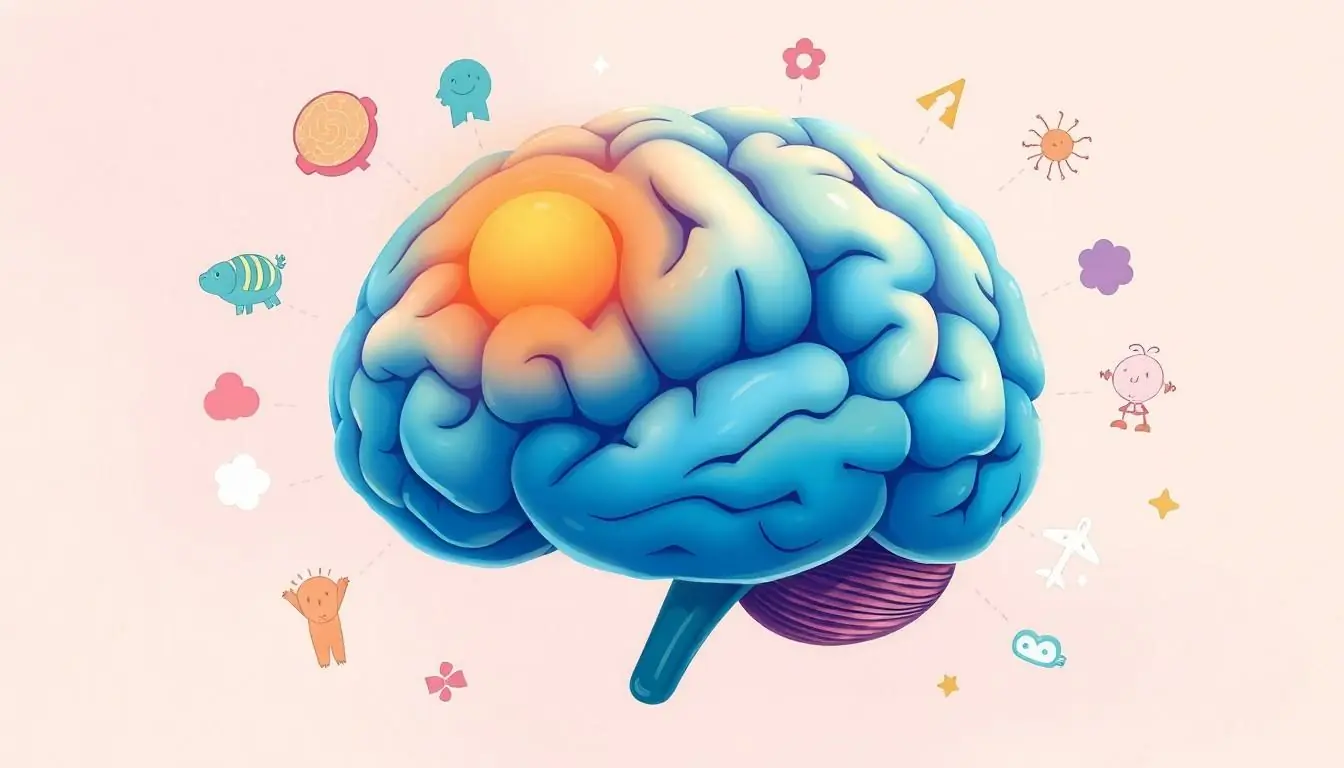Table of Contents
ToggleEver wonder why your earliest memories don’t feature adorable baby giggles or the thrill of discovering your toes? It’s a mystery that puzzles many, and it turns out there’s a scientific reason behind it. While most of us can recall our first day of school or that epic birthday party, the baby years remain a fuzzy blur.
Understanding Infant Memory
Infant memory plays a crucial role in understanding why adults often lack memories from their earliest years. Memory formation during infancy is unique, shaped by developmental changes and cognitive abilities.
Definition of Infant Memory
Infant memory refers to the ability of babies to retain and recall information from their experiences. It primarily involves implicit memory, which operates unconsciously and influences behavior without explicit recollection. Declarative memory, in contrast, pertains to the conscious recall of facts and events. Infants predominantly rely on implicit memory during their early months, which limits their capacity to remember specific experiences clearly.
Key Research Findings
Research highlights several critical aspects of infant memory. Studies show that infants can recognize familiar faces shortly after birth, demonstrating early memory capabilities. A significant finding involves the phenomenon known as childhood amnesia, where most adults cannot recall memories before the age of three. The hippocampus and prefrontal cortex, crucial for memory processing, undergo substantial development in the first few years. These developmental changes hinder the formation of durable, retrievable memories in infancy, explaining the lack of recollections from that stage of life.
The Science Behind Memory Formation
Understanding the mechanisms of memory formation reveals why recalling infant experiences proves challenging. Memory development occurs in stages, each crucial for forming and retaining memories.
Stages of Memory Development
Memory develops in distinct phases. Infancy typically features implicit memory, allowing babies to recognize caregivers and familiar surroundings. Between ages two and three, children transition to explicit memory, enabling conscious recall of events. Significant shift happens between ages three and four, when the ability to remember personal experiences and narrative skills develops. Memories from before age three often fade, creating a gap in recollection. This stage-based progression illustrates how memories evolve over time.
Role of Brain Development
Brain maturation plays a pivotal role in memory formation. The hippocampus, essential for memory processing, undergoes rapid growth during infancy and early childhood. It influences the capability to form long-lasting memories. Additionally, the prefrontal cortex, responsible for decision-making and social behavior, doesn’t fully develop until late childhood. This developmental timeline impacts memory retrieval, resulting in childhood amnesia. Understanding brain growth highlights its connection to why adults can’t recall early experiences.
Reasons Why We Don’t Remember Being Babies
Infants typically lack the ability to form lasting memories, contributing to the absence of recollections from babyhood.
Childhood Amnesia
Childhood amnesia refers to the phenomenon where individuals cannot recall memories before the age of three. This inability stems from significant brain development that occurs during early childhood. Experiences from infancy often fade due to the brain’s ongoing maturation processes. Psychologists estimate that about 90% of individuals cannot retain memories from their early years. Implicit memories formed during infancy differ from explicit memories, which emerge as children grow. The transition from implicit to explicit memory is crucial for developing recall skills.
Neurobiology of Recall
Neurobiology plays a key role in understanding memory formation and retrieval. The hippocampus matures rapidly during early life, crucial for forming durable memories. Without this development, memories remain unformed and unretrievable. Additionally, the prefrontal cortex, responsible for higher-order thinking and decision-making, evolves later in childhood. As this area of the brain develops, children’s capacity for conscious recollection increases. Researchers highlight that the interplay between these brain regions significantly influences memory capabilities, impacting the recall of early experiences.
Importance of Early Experiences
Early experiences shape future memory capabilities and identity formation. The lack of recollection from infancy plays a significant role in how individuals build memories later in life.
Impact on Future Memory
Memories from the early years influence cognitive development. Recognition of familiar faces occurs within days of birth, laying the groundwork for memory formation. Implicit memory exists in infancy, guiding actions and preferences without conscious awareness. By age two, a transition to explicit memory marks the beginning of conscious recall. The shift facilitates the ability to remember events. Developmentally, this gradual progression equips children with narrative skills by age four, enhancing their capacity to create lasting memories as they grow.
Formation of Identity
Identity formation begins with early experiences. Infants learn through interactions with caregivers, shaping connections and emotional responses. These initial relationships foster a sense of self, influencing later social behavior and decision-making. Over time, the development of memory allows individuals to integrate these experiences into their personal narratives. The maturation of the hippocampus and prefrontal cortex plays a critical role in this process. As individuals navigate their experiences, a unique identity begins to emerge, underscoring the significance of early memories, even when those memories are not consciously accessible.
Conclusion
The inability to remember experiences from infancy is a fascinating aspect of human development. It highlights the complex interplay between brain maturation and memory formation. While early memories may not be consciously accessible, they significantly influence identity and cognitive growth. Understanding the mechanisms behind childhood amnesia and the transition from implicit to explicit memory reveals the importance of these early stages in shaping future recollections. Ultimately, even without vivid memories from babyhood, these foundational experiences lay the groundwork for how individuals perceive and interact with the world as they grow.







